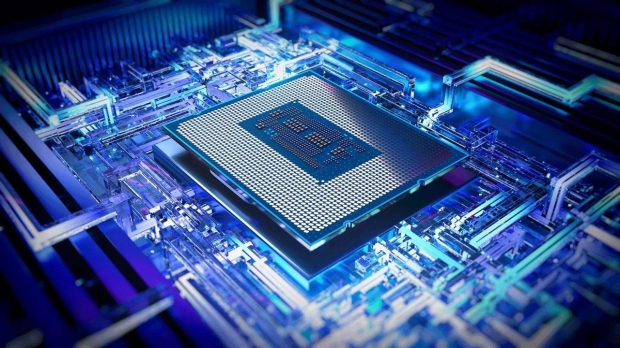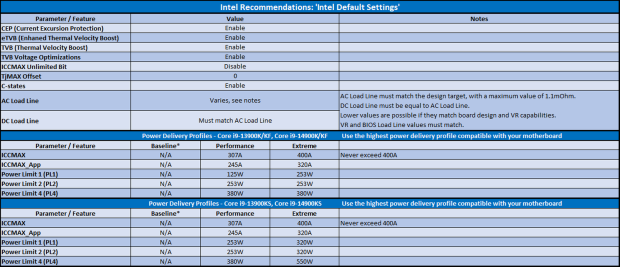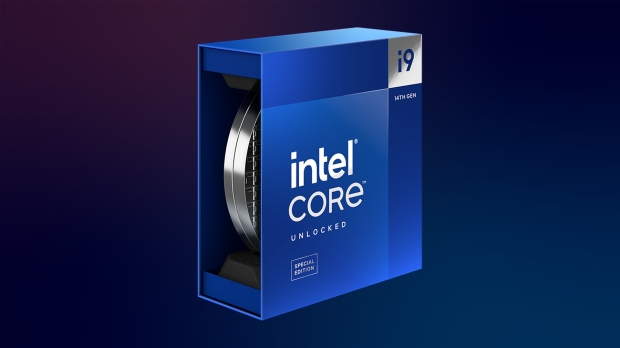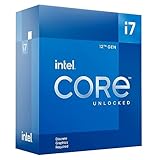Intel has been in a spot lately regarding its flagship high-end 13th and 14th Gen Core i9 desktop processors, with widespread reports of instability. The extent and detailed causes of the crashes are still unknown. Still, many believe it to be due to the increased power requirements of high-end Intel CPUs and motherboard profiles and official specs and guidelines bypassing proper voltage regulation.

Various motherboard makers have released BIOS updates to address the issue, implementing new 'Intel Baseline Profiles' to improve stability at the cost of performance. The band-aid approach was simple: reign everything in, and the issues will disappear.
In a new statement for its customers and partners, Intel states that the new 'Intel Default Settings' represent a range of power delivery profiles based on a motherboard's capabilities. In fact, Intel wants customers to continue pushing the new CPUs as it "recommends customers implement the highest power delivery profile compatible with each individual motherboard design."
This means the Performance or Extreme profiles are back in for high-end Core i9-13900K/KF, Core i9-14900K/KF, Core i9-13900KS, and Core i9-14900KS processors - depending on the motherboard. Intel's latest statement clearly outlines how lowering performance on its high-end CPUs is not the solution; however, overall performance will depend on the motherboard's capabilities.
Intel claims that the recent BIOS updates from its motherboard partners were overly conservative and "based on power delivery guidance previously provided by Intel" and are not recommended. Here's the complete statement and new 'Intel Default Settings.'
Several motherboard manufacturers have released BIOS profiles labeled 'Intel Baseline Profile.' However, these BIOS profiles are not the same as the 'Intel Default Settings' recommendations that Intel has recently shared with its partners regarding the instability issues reported on 13th and 14th gen K SKU processors.
These 'Intel Baseline Profile' BIOS settings appear to be based on power delivery guidance previously provided by Intel to manufacturers describing the various power delivery options for 13th and 14th Generation K SKU processors based on motherboard capabilities.
Intel is not recommending motherboard manufacturers to use 'baseline' power delivery settings on boards capable of higher values. Intel's recommended 'Intel Default Settings' are a combination of thermal and power delivery features along with a selection of possible power delivery profiles based on motherboard capabilities.
Intel recommends customers to implement the highest power delivery profile compatible with each individual motherboard design as noted in the table below.

- Read more: Intel Arrow Lake rumored to be the best part of 1GHz slower than 14th-gen CPUs
- Read more: Intel's next-gen flagship Core Ultra 9 285K 'Arrow Lake' CPU rumored to hit 5.5GHz
- Read more: Intel set to roll out update that reduces performance for high-end CPUs
- Read more: Intel blames motherboard makers for stability issues with its 13th and 14th Core i9 processors



